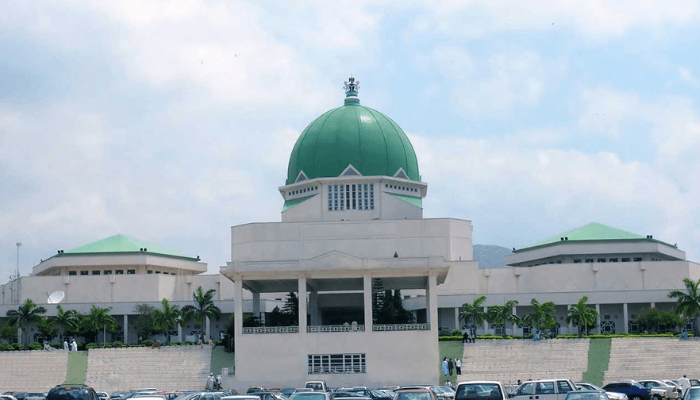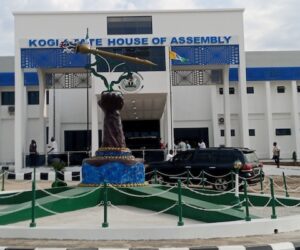Governance experts and civil society organisations have renewed calls for reform of the National Assembly’s legislative calendar following yet another adjournment of plenary by the Senate and House of Representatives.
They argue that clear timelines should be enforced to prevent frequent, unplanned adjournments.
Tolu Adeniran, policy expert, said, “The public needs to see evidence of productivity during recessions. Otherwise, all Nigerians see are empty chambers and rising allowances, and that damages trust in democracy.”
Both chambers, which were due to resume on September 23, have now shifted their resumption by two weeks, citing ongoing committee work and consultations.
Read also: 2025 Budget: NASS Seeks Withdrawal of Contract Circulars
In a memo signed by Kamoru Ogunlana, clerk to the National Assembly, lawmakers were directed to reconvene on Tuesday, October 7, 2025.
The memo stated, “I am directed by the presiding officers of both Chambers of the National Assembly of the Federal Republic of Nigeria to inform all members of the National Assembly and the general public that the Resumption date of the National Assembly, earlier scheduled for Tuesday, 23rd September 2025, is postponed to Tuesday, 7th October 2025.
“However, committee activities continue. All Distinguished Senators and Honourable Members are requested to take note of the new date and adjust their schedules accordingly
“Any inconvenience caused by this rescheduling is deeply regretted.”
But for many observers, this latest extension only reinforces concerns about the legislature’s lack of sustained deliberations.
Since its inauguration in June 2023, the 10th Assembly has frequently taken recesses that extend far beyond the scheduled duration.
Critics argue that the pattern weakens oversight, stalls debates on pressing bills, and creates disconnect between lawmakers and citizens.
For many Nigerians, the frequent adjournments symbolise lawmakers’ detachment from the realities of citizens who grapple with inflation, insecurity, unemployment, and poor infrastructure daily.
Read also: NASS to transmit constitution review report to States in December
Speaking to our correspondent, Blessing Akpeji, political analyst, blamed the incessant breaks on lawmakers who are yet to feel the pulse of the people.
She said, “The Assembly has built a reputation of being more absent than present. Even when Nigerians face pressing issues such as insecurity, economic hardship, or inflation, plenary is often adjourned.
“That creates a serious disconnect between citizens and their representatives.”
Analysts warn that such irregularities in the sitting calendar weaken oversight and delay action on urgent national issues.
With less than four months left in the fiscal year, civil society groups argue that the Assembly risks losing valuable time needed to review budget implementation, consider the Medium Term Expenditure Framework, and prepare for the presentation of the 2026 budget.
Auwal Musa Rafsanjani of the Citizens Rights Network said the decision is yet another letdown.
“Security crises, economic reforms, and oversight on budget implementation cannot wait. Each time lawmakers push resumption forward, citizens pay the price for that lost time,” he said.
“The risk is that momentum on very critical bills is lost.
Read also: Beyond NASS’ constitution amendment drive and the coalition’s babel of voices
“Legislative time is national time. Every day a plenary is on hold is a day lost in tackling urgent challenges.
“By the time lawmakers return, new crises may have overtaken old ones, leaving Nigerians in a perpetual state of waiting.
“The legislature’s watchdog role is compromised when plenary is suspended for long periods. It creates loopholes for the executive to act unchecked,” Rafsanjani lamented.
Beyond the budget, the adjournment also affects other key issues awaiting deliberation, including constitutional amendments, national security, and investigations into allegations of mismanagement in critical sectors such as the Nigerian National Petroleum Company Limited.
Lawmakers are also expected to begin consideration of the Medium Term Expenditure Framework & Fiscal Strategy Paper ahead of the 2026 budget presentation, which constitutionally must take place before year-end.
Despite the criticisms, some lawmakers insist the break is necessary.
A ranking senator, who spoke on condition of anonymity, said the adjournment allows for ‘proper housekeeping.’
The senator explained, “This break is not about avoiding work,” the senator said. “Some of our colleagues have gone to the United Nations General Assembly, amongst many other National assignments.
Read also: NASS mulls law reform for enforcement of Supreme Court’s LG autonomy ruling
“Nigerians will see the results of what we’re doing behind the scenes once plenary resumes.”
Similarly, a member of the House of Representatives argued that the two-week extension would improve the quality of legislative output, particularly on finalising issues on the constitutional amendment process.
“Our people expect us to deliver not just fast, but well-thought-out laws. To do that, we must consult widely, engage stakeholders, and prepare thoroughly.
“Committee work is the backbone of parliamentary democracy,” he told BusinessDay.









